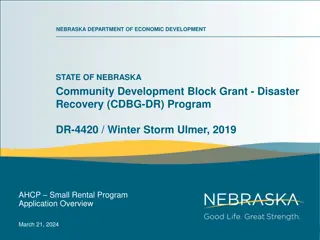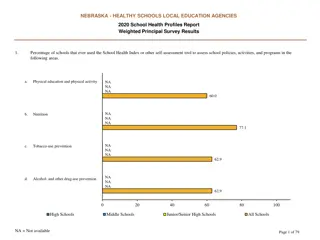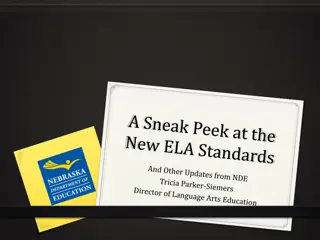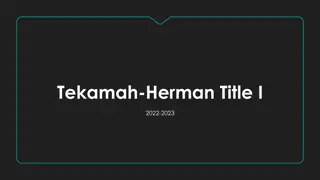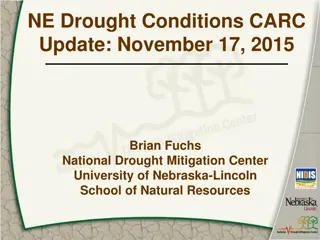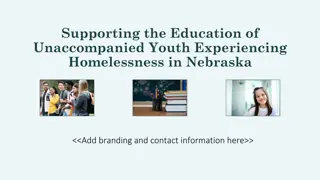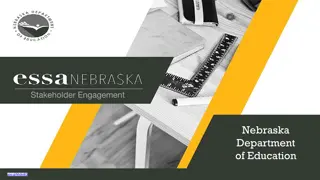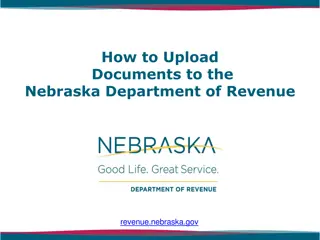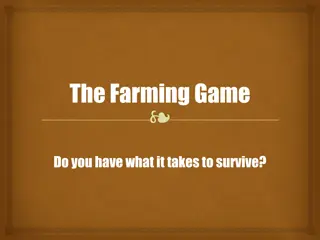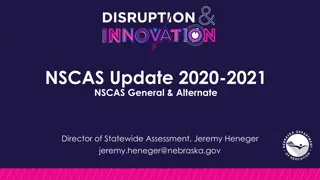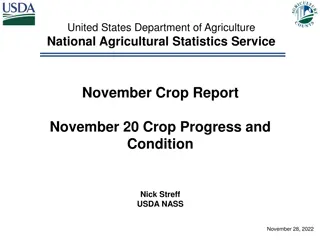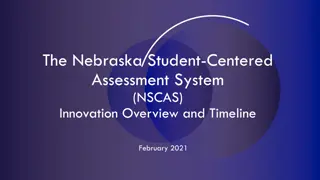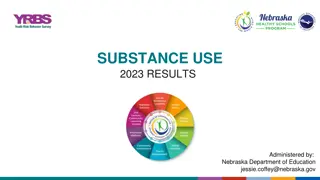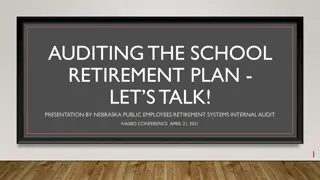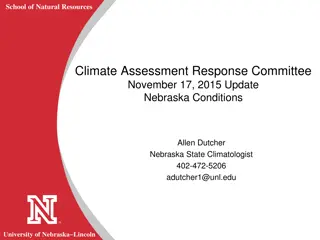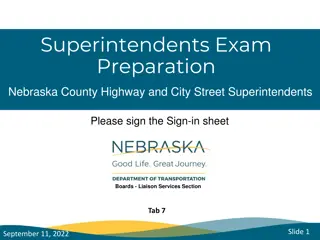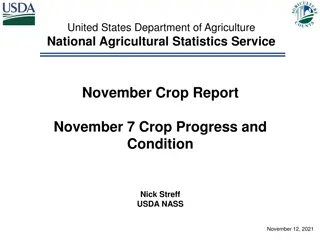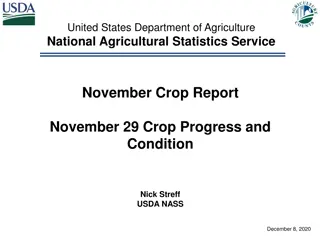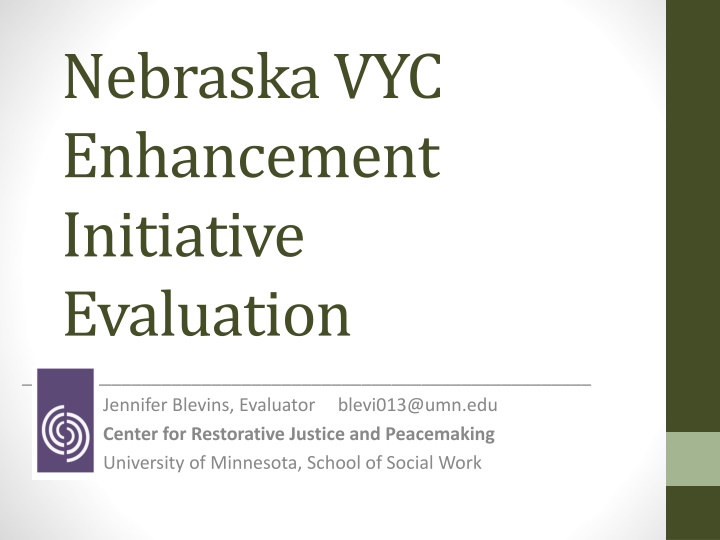
Restorative Justice Evaluation: Nebraska VYC Enhancement Initiative
Explore the evaluation plan and objectives of the Nebraska VYC Enhancement Initiative, aiming to reduce youth involvement in the justice system through victim youth conferencing. Understand the theory of change, outputs, outcomes for youth and victims, evaluation questions, and descriptive data examples to assess effectiveness and impact comprehensively.
Download Presentation

Please find below an Image/Link to download the presentation.
The content on the website is provided AS IS for your information and personal use only. It may not be sold, licensed, or shared on other websites without obtaining consent from the author. If you encounter any issues during the download, it is possible that the publisher has removed the file from their server.
You are allowed to download the files provided on this website for personal or commercial use, subject to the condition that they are used lawfully. All files are the property of their respective owners.
The content on the website is provided AS IS for your information and personal use only. It may not be sold, licensed, or shared on other websites without obtaining consent from the author.
E N D
Presentation Transcript
Nebraska VYC Enhancement Initiative Evaluation _________________________________________________________ Jennifer Blevins, Evaluator blevi013@umn.edu Center for Restorative Justice and Peacemaking University of Minnesota, School of Social Work
Objectives for Today (5.1.18) 1. Review the evaluation plan and timeframe. 2. Decide best approach (for efficiency and accuracy) to partner on data collection. 3. Identify additional questions or hypotheses about VYC effectiveness to include in evaluation. 4. Surface any other questions or evaluation challenges to be addressed.
Overview: VYC Initiative VYC Theory of Change Victim Youth Conferencing as a primary restorative justice intervention will reduce youth involvement in the justice system. Recidivism is reduced DMC gap is closed Communities are safer Capacity for VYC is sustained Logic Model: Inputs Activities Outputs Short term and Intermediate Outcomes Long term Outcomes
Outputs and Outcomes for Youth and Victims: Short term and Intermediate 95% of VYC s have Reparations 97% of Participants Satisfied 82% of Youth won t Recidivate 95% of Reparations Fulfilled Fulfilled!
Evaluation Questions Normative: Descriptive: Process evaluation- What's working, what can be improved and is fidelity to best practices maintained? Demographic and program specific data - Who is served and under what conditions? Impact: Outcome evaluation - What's different as a result, why and how do we know?
VYC Descriptive Data Example Race (n=154) July 1, 2016 - June 30, 2017 White (47) Black/African American (7) Asian (0) Hispanic (10) American Indian or Alaska Native (1) Other (3 Kurdish) Data not provided (86)
Normative/Process Data Example Post VYC Conference Survey 7/1 12/31/17 Youth Responses (n=100; TMC = 99; Concord = 1) How satisfied are you with the way we prepared you for the meeting?
Impact/Outcome Data Example Project Restore, The Mediation Center November 1, 2015 to June 30, 2017 50 youth received VYC services as an alternative to court. 94% of completed VYC's resulted in a reparations agreement for the youth to make amends. 98% of reparations agreements were successfully fuliflled by youth and 2% were in progress. 4 out of 5 youth who participated in VYC did not have a second offense sent to court within 1 year.
Current VYC Data Spreadsheet Review handout Importance of maximizing Accuracy Efficiency Effectiveness For Discussion: What probing questions or hypotheses could deepen our understanding of VYC effectiveness? Example: Is there a correlation between types of reparations and successful youth outcomes?
VYC Enhancement Initiative Evaluation Methods and Management Responsibilities Timeframe Client Data in Caseload Manager Mediation Centers report data to Evaluator for analysis. Provide data in spreadsheet. 9-month report Due 5/30/18 Fiscal year end Due 7/20/18 Quarterly as of Sept. 30, 2018 Fiscal year end Due 7/20/18 Quarterly as of Sept. 30, 2018 VYC Conference Satisfaction Survey Mediation Centers provide survey to participants. Hard copies sent to Evaluator. Post-VYC Case Closure Interviews Evaluator or Mediation centers? Ongoing What type of schedule works best? Review of Reparations Agreements Mediation Centers send copies without personal identifiers to Evaluator for analysis. Ongoing What type of schedule works best? Case Summaries Mediation Centers identify 1 case to be summarized by Evaluator in report. June 30,2018 Annually Qualitative Interviews with Stakeholders (12+) and Focus Group (12) Mediation Centers identify internal and external stakeholders to be interviewed by Evaluator. July September, 2018 Annually Recidivism Mediation Centers report data to ODR. ODR accesses Supreme Court s JUSTICE data system. ODR provides data to Evaluator. June 30, 2018 Quarterly as of Sept. 30, 2018? Question for Discussion: What will increase data collection efficiency and accuracy?
Participant Satisfaction Survey Surrogate's Evaluation of VYC Meeting https://umn.qualtrics.com/jfe/form/SV_aXog4DPWLU17Jqd Victim's Evaluation of VYC Meeting https://umn.qualtrics.com/jfe/form/SV_dg9iWunq48RYowl Youth Evaluation of VYC https://umn.qualtrics.com/jfe/form/SV_0PQyZUdRHNmZdIN Youth's Evaluation of VYC Meeting with Surrogate https://umn.qualtrics.com/jfe/form/SV_6fYTS56Hd38KNmt Question for Discussion: What will make the survey process more efficient and accurate?
Wrap up What more do we need to consider? Any other questions? Next steps?

